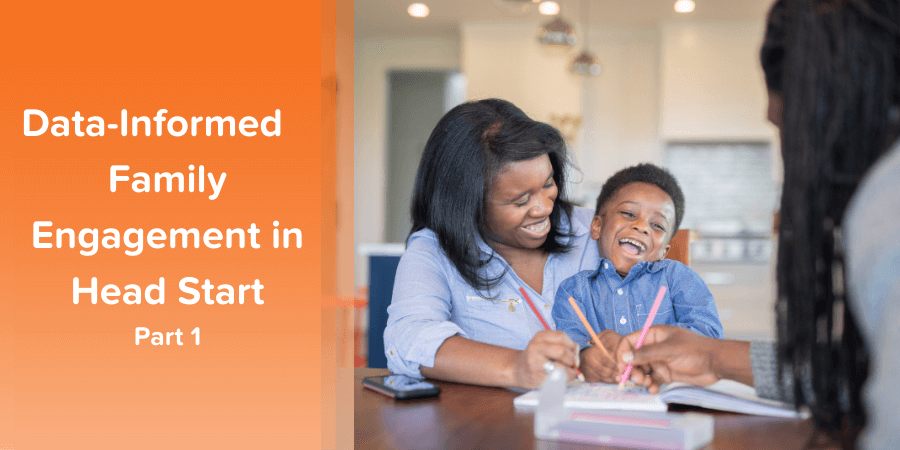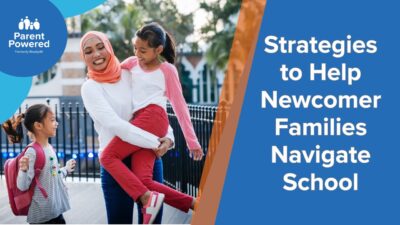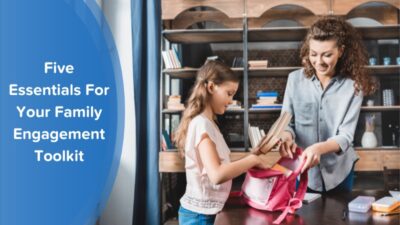By Maren Madalyn, contributing writer
This post is Part 1 of a 3-part series exploring how to use PFCE data-informed approaches to increase the efficacy of Head Start family engagement strategies and other services in early childhood programs. Watch our webinar with the National Head Start Association about how Parent Gauge and ParentPowered Trauma-Informed combine to create powerful family engagement!
Every early childhood educator knows that family engagement is essential to setting up our youngest learners for long-term success. After all, parents, caregivers, and guardians are the teachers in any child’s life, and these crucial stakeholders make all the difference when it comes to early learning.
With summer just around the corner, many Head Start programs will soon begin preparations for creating another successful program year of family and school engagement in accordance with the Parent, Family, and Community Engagement Framework (PFCE).

These planning routines may look familiar year to year:
- First, teams review their previous year’s PFCE data collected from family surveys, interviews, and other sources. They analyze and identify where their family engagement ideas and efforts had the greatest impact.
- When the next program year begins, staff conducts strengths and needs assessments with new and returning families, collecting information about relevant situations in each home. Guided by the PFCE framework, this data informs their family engagement goals and helps determine the program services to emphasize in specific program impact areas.
- Last, Head Start program teams plan out their year, filling calendars and engagement plans with a wide range of family events and activities designed to support both child and family wellbeing.
Everything is in place to build positive, goal-oriented relationships between Head Start staff and families — except for a few challenges that can affect family engagement outcomes.
While the set-it-and-forget-it method to planning out family engagement may work initially, families’ needs are bound to change as the year progresses. And when those needs evolve, it can be difficult for Head Start program teams and community partners to know what they need to do to best respond to these shifts and continue adding value to children and their families.
Further, just like families, program staff may face constraints with time, resources, and budgeting, which can limit the events and opportunities they can offer to families. These constraints can also affect which families can access educational and community services, especially if events are often held in person.
How do early childhood educators ensure that, throughout the entire year, children and their family members benefit from all the resources and support that Head Start programs have to offer? How can the Head Start PFCE framework drive iterative improvement, ultimately leading to better family outcomes through engagement?
The solution: a data-informed approach to family engagement that’s easy to use throughout the year.

The power of data-informed family engagement in early childhood education
At a high level, a data-informed approach to family engagement serves as a road map for implementing ongoing, iterative changes. These incremental shifts ensure that Head Start program offerings meet families where they are and have a direct impact on family well-being, even as family needs shift. It’s all about engaging in a cycle of continuous learning and improvement to better understand families’ unique needs and strengths. Don’t forget, a Head Start parent plays an enormous role in this process, sharing their perspectives and experiences.
Practically speaking, it means that Head Start program teams collect and review their PFCE data throughout the year, not just at the beginning or end of it. They use that data to inform strategic adjustments to family engagement efforts with the goal of improving family and child outcomes. As family needs evolve, so too does Head Start programming!

ParentPowered and the National Head Start Association (NHSA) both recognize the power of data-informed family support programs. We know that parents of little learners are happier and better served when Head Start programs use an iterative approach to building their family engagement offerings. And we also know that education teams don’t have to make huge changes to staffing, budgets, or schedules to increase their program’s impact and strengthen program foundations.
This is why we combined the power of PFCE data analysis from Parent Gauge™ with the text-based learning activities and family feedback collection from ParentPowered Trauma-Informed. Together, these tools aid Head Start programs by catalyzing their family engagement efforts — in incremental but impactful ways — and maximizing the potential of every child and family to thrive.
Discover the benefits data-informed Head Start family engagement
In Part 2, we demonstrate how a fictional Head Start program uses Parent Gauge and ParentPowered Trauma-Informed to analyze PFCE data and strengthen their family engagement strategies all year long. In Part 3, we examine how this program iterates throughout the program year to make progress improving families’ lives. You can continue reading the series here
Eager to learn more about a data-driven approach to family engagement in Head Start programs and early childhood education? Watch our webinar with the National Head Start Association about how Parent Gauge and ParentPowered Trauma-Informed combine to create powerful family engagement!

About the author
Maren Madalyn has worked at the intersection of K12 education and technology for over a decade, serving in roles ranging from counseling to customer success to product management. She blends this expertise with fluid writing and strategic problem-solving to help education organizations create thoughtful long-form content that empowers educators.





